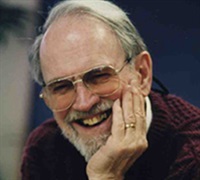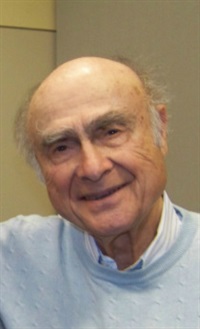EP95 Invited Address 07b - There is a Fundamental Division in How Psychotherapy is Conceived - James F.T. Bugental, PhD
- Average Rating:
- Not yet rated
- Topic Areas:
- Invited Addresses | Psychotherapy | History of Psychotherapy | Therapist Development
- Categories:
- Evolution of Psychotherapy | Evolution of Psychotherapy 1995
- Faculty:
- James Bugental, PhD | Erving Polster, PhD
- Duration:
- 1 Hour 19 Minutes
- Format:
- Audio Only
- Original Program Date:
- Dec 16, 1995
- License:
- Never Expires.
Description
Description:
Invited Address Session 7 Part 2 from the Evolution of Psychotherapy 1995 - There is a Fundamental Division in How Psychotherapy is Conceived
Featuring James FT Bugental, PhD, with discussant Erving Polster, PhD.
Moderated by Ellyn Bader, PhD.
For the past half-century there has been a remarkable and continual evolution in the theory and practice of psychotherapy. Now that evolution shows signs of becoming a revolution. Many elements of these changes are, as yet, only scantily represented in the literature, but they are the stuff of bull sessions, the more liberated case conferences and solitary, sometimes fearful, experimentations. This transition comes about from a variety of influences, among which three are particularly worthy of examination for what they suggest about what is likely to emerge a half-century from now. The three are: 1) Developments in our understanding of our own nature as human beings. 2) Experiments with delivery systems for psychotherapy. 3) Great numbers of new entrants into the field, of whom many have limited or nontraditional training.
Educational Objectives:
- To describe, with increased perspective, the ongoing and emotionally loaded multilogue about the likely further evolution of our discipline.
- To describe levels in which changes are going to occur.
- To describe one's own beliefs about human nature as it is expressed, worked with and influenced by counseling and psychotherapy and confront the central challenges of those beliefs.
*Sessions may be edited for content and to preserve confidentiality*
Credits
Faculty

James Bugental, PhD Related Seminars and Products
James Bugental, PhD, was one of the predominant theorists and advocates of the Existential-Humanistic Therapy movement. He received his Ph.D. from Ohio State University in 1948, was named a Fellow of the American Psychological Association in 1955, and was the first recipient of the APA's Division of Humanistic Psychology's Rollo May Award. James devoted himself to teaching and writing; he was also an Emeritus Professor, Saybrook Institute, and an Emeritus Clinical Lecturer (formerly Associate Clinical Professor), Department of Psychiatry, Stanford University Medical School. In 1987, he was the recipient of the first annual Rollo May Award of the Mentor Society "for contributions to the literary pursuit," and in 1986, he received a certificate "in recognition of the distinguished contribution to the discipline of Clinical Psychology" from the Division of Clinical Psychology, American Psychological Association. He was a past president of the Association for Humanisitic Psychology and served on the editorial boards of eight professional journals. Bugental has written 150 articles, reviews, comments, and chapters in books edited by others.

Erving Polster, PhD Related Seminars and Products
Erving Polster, Ph.D in clinical psychology, is the Director of The Gestalt Institute of San Diego, and the author of several important books, including Gestalt Therapy Integrated, Every Person's Life is Worth a Novel, and From the Radical Center: The Heart of Gestalt Therapy, as well as dozens of articles and chapters. Erving has authored 6 books. In his current writings, he offers perspectives and designs for a communal application of psychotherapy principles. He also describes and celebrates a powerful contemporary momentum for people-at-large to join together in the search for personal and social enlightenment.


